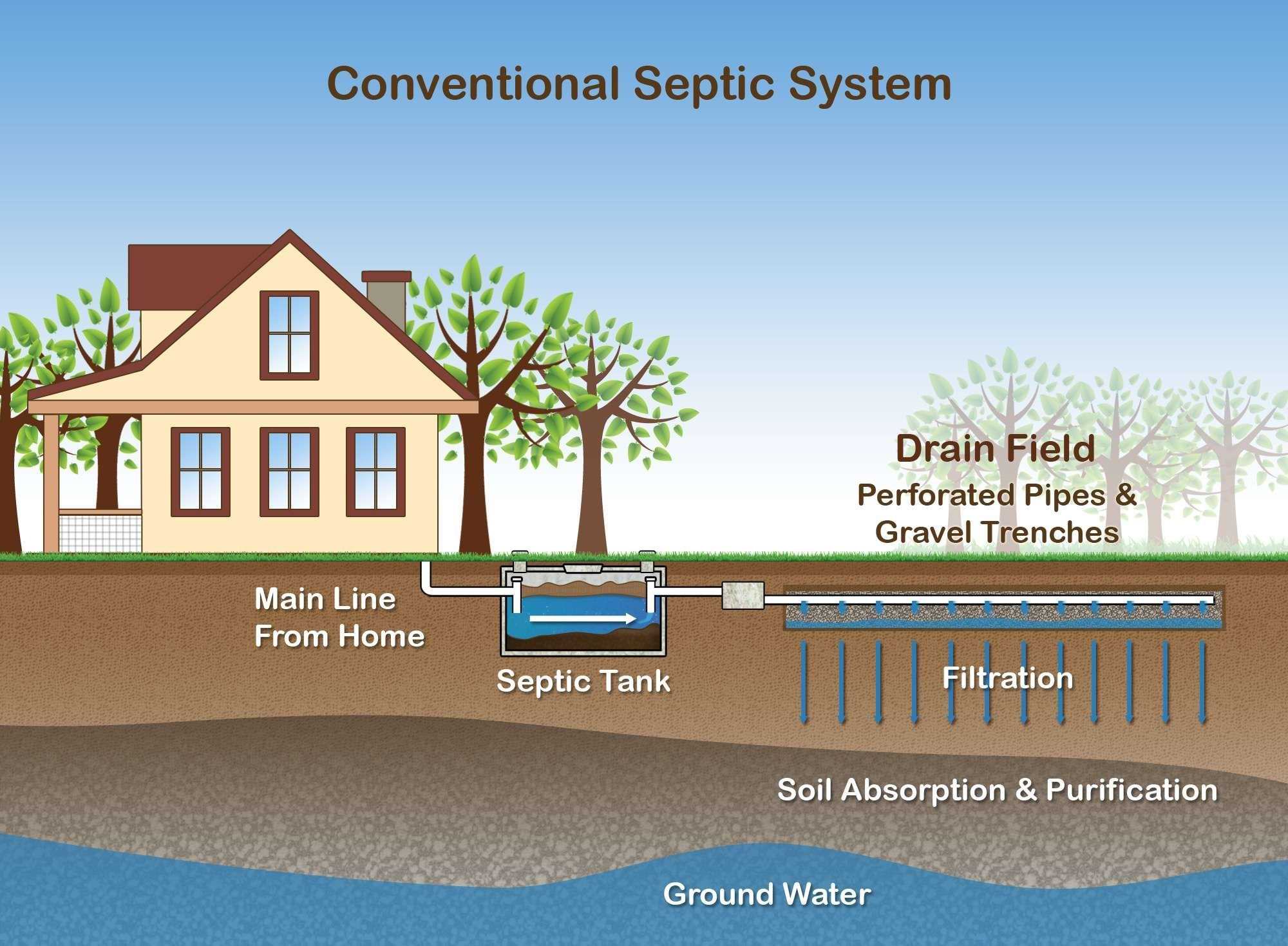
How Septic Systems Work? Paul Bunyan Plumbing & Drains
Sanitary plumbing system includes the pipes, fittings are. SANITARY FITTINGS Plumbing is the practice, materials and fixtures used in the installation or maintenance of all pipes in connection with both water supply and sanitary systems within or adjacent to any building. The entire system of piping, fittings and the appurtenances are known as.
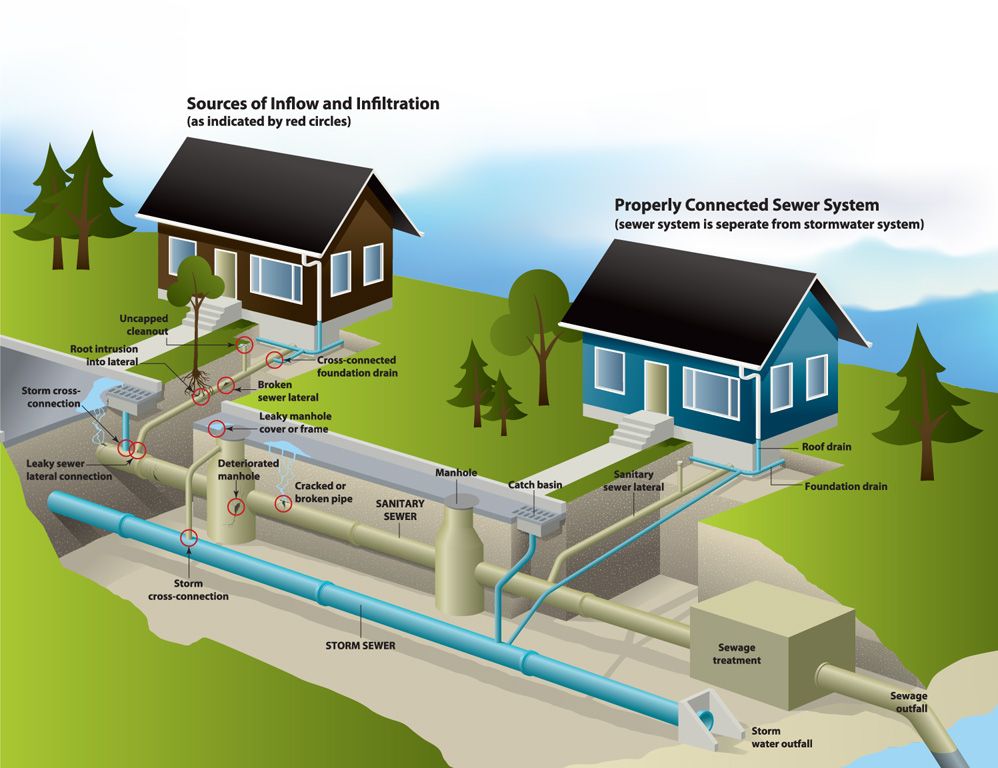
The Ultimate Guide to Sewage System Gustawater
Sanitary plumbing system. With years of experience in minor sewerage and sanitary system, our licensed plumbers strive to manage and complete the project timely, meeting the authority requirement. When tested in accordance with the following requirements, the respective sections of the discharge pipes/stacks, ventilating pipes/stacks and waste.
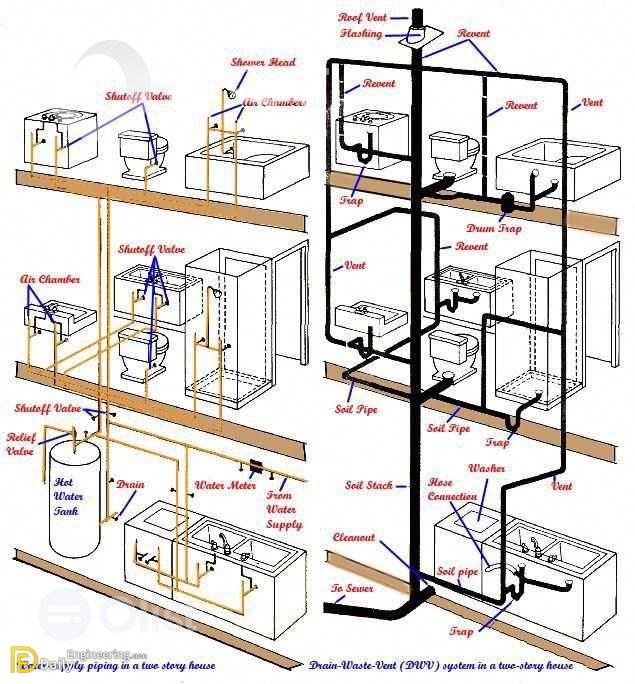
Understanding The Plumbing Systems In Your Home Daily Engineering
The basics of sanitary drainage systems include, but are not limited to, the following: public and private sewage disposal; selection of materials; installation of the building sewer, including the building drainage system and components; joining methods between drainage piping and fittings; drainage fixture units for sizing the drainage system;.

Photo GallerySANITARY AND PLUMBING SYSTEM E.C.T. PROFESSTIONAL
1. The DWV Fittings Used To Plumb This Bathroom (based on code) 2. Bathroom Plumbing Rough-In Dimensions 3. How To Plumb a Bathroom Sink 4. The Only Fitting Code Allows for Vertical to Horizontal Transitions 5. How To Rough-In the Toilet Drain 6. How To Easily Create a Cleanout (it's just two fittings) 7.

What is a Sanitary Sewer? (with pictures)
The plumbing water supply system consists of water supply and distribution pipes, taps, valves, storage tanks etc., while plumbing drainage system consists of wash basins, water closets, urinals, traps, soil waste pipes, vent pipes, septic tanks etc. Types of Water Pipes used in Building 1. PVC Pipes

Plumbing Line for Sanitary System. Stock Photo Image of outdoor, outdoors 125883586
HowStuffWorks Plumbing follows the basic laws of nature — gravity, pressure and water seeking its own level. Knowing this, you can understand its "mysteries" and make dozens of fixes to your home's plumbing system. You can save yourself time, trouble and money! The plumbing system in your home is composed of two separate subsystems.
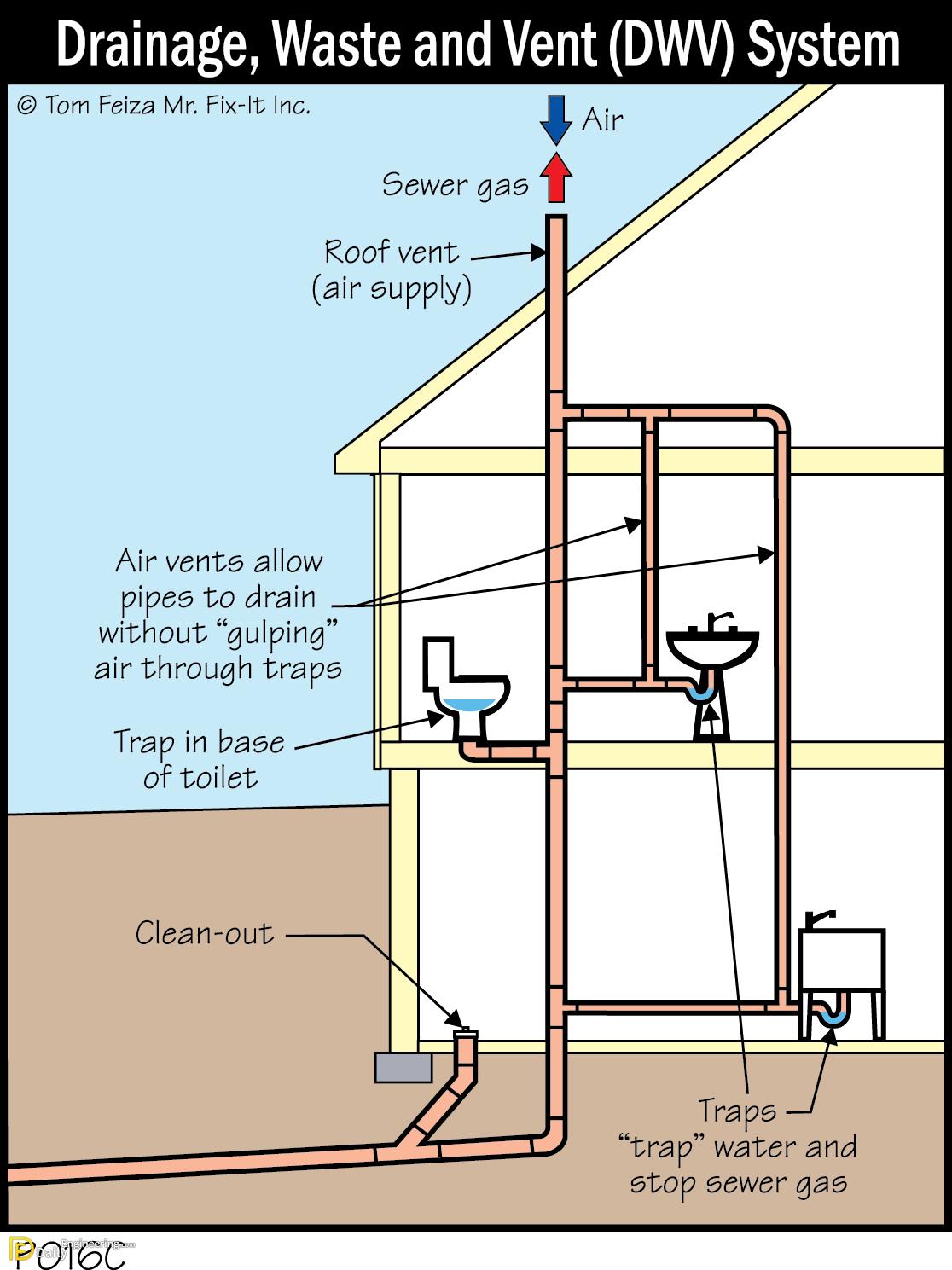
Understanding The Plumbing Systems In Your Home Daily Engineering
At its core, plumbing is the intricate network of pipes and drains that move water to and from a structure, ensuring that we have access to clean water and effective waste removal. To gain a deeper understanding, let's delve into the 3 main types of plumbing systems: sanitary drainage, stormwater drainage, and potable water. 1. Sanitary.
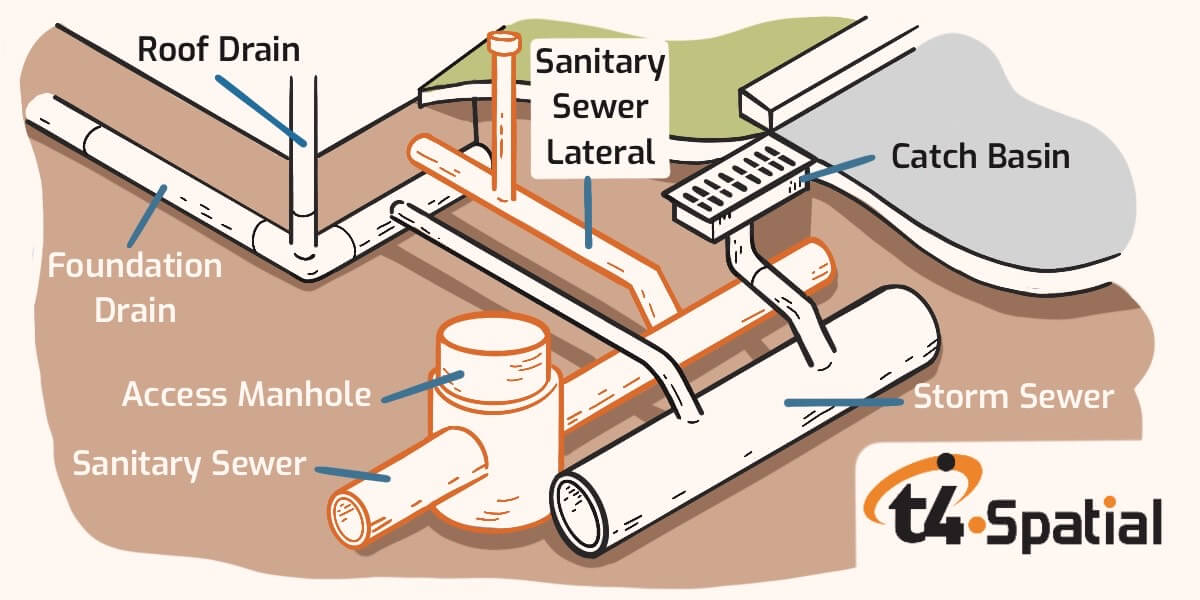
The Three Types of Sewer Systems and How They Work t4 Spatial
When one thinks of a sanitary plumbing system, it is generally confined to the Drainage, Waste, and Vent (DWV) system within the limits of a 30-inch boundary around the building envelope. Yes, 30-inches, although we normally use 5 feet to transition between the "building drain and building sewer."
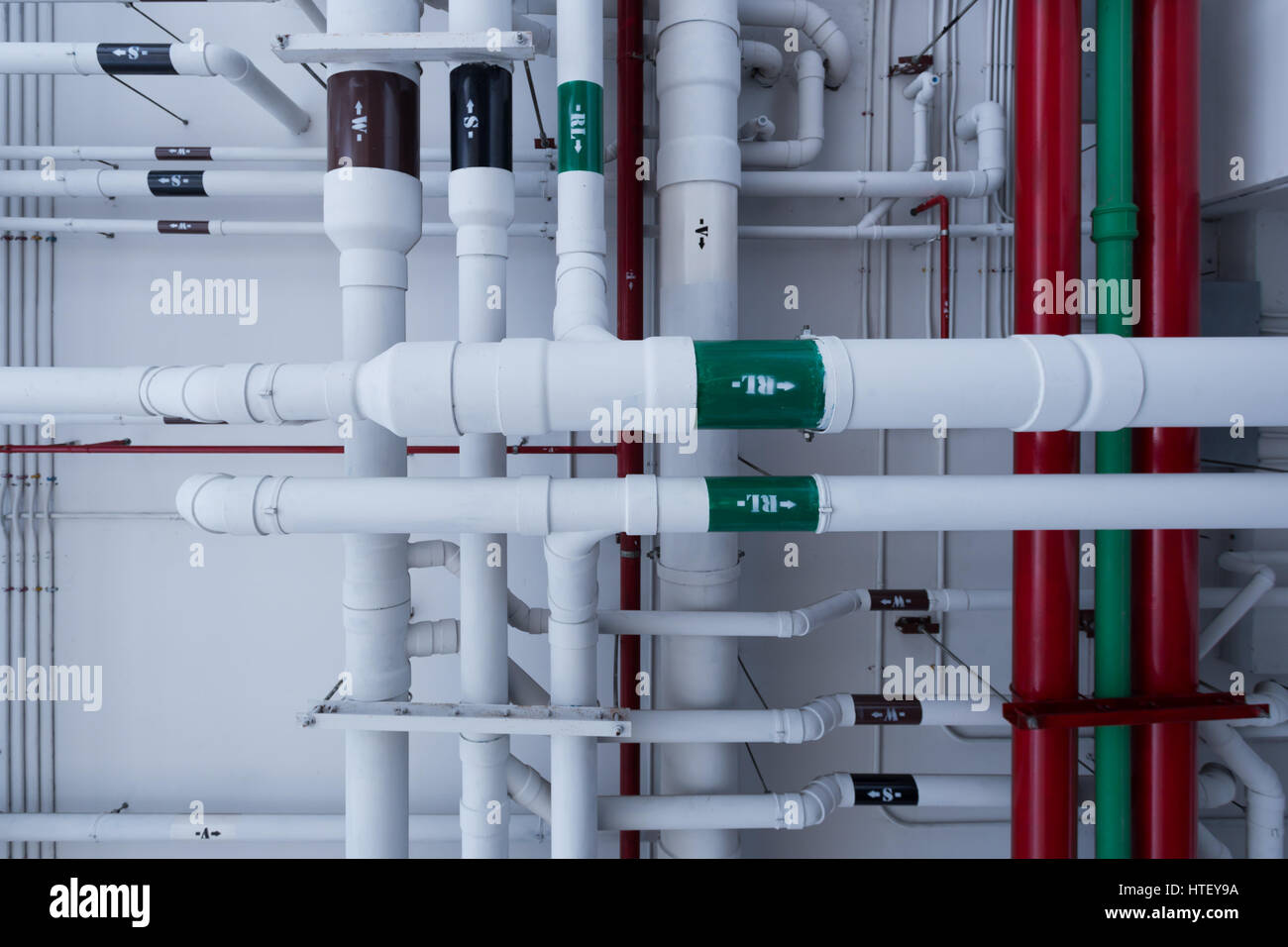
Sanitary system and pipe systems installed on condominium ceiling Stock Photo Alamy
The drain pipes in the building connect to a community sewer line or septic system. Here are the three main types of sanitary plumbing systems: Gravity systems use the natural slope of the pipe to transport wastewater. Low-pressure systems help move wastewater with small electric pumps. Vacuum systems use sewage fittings connected through.
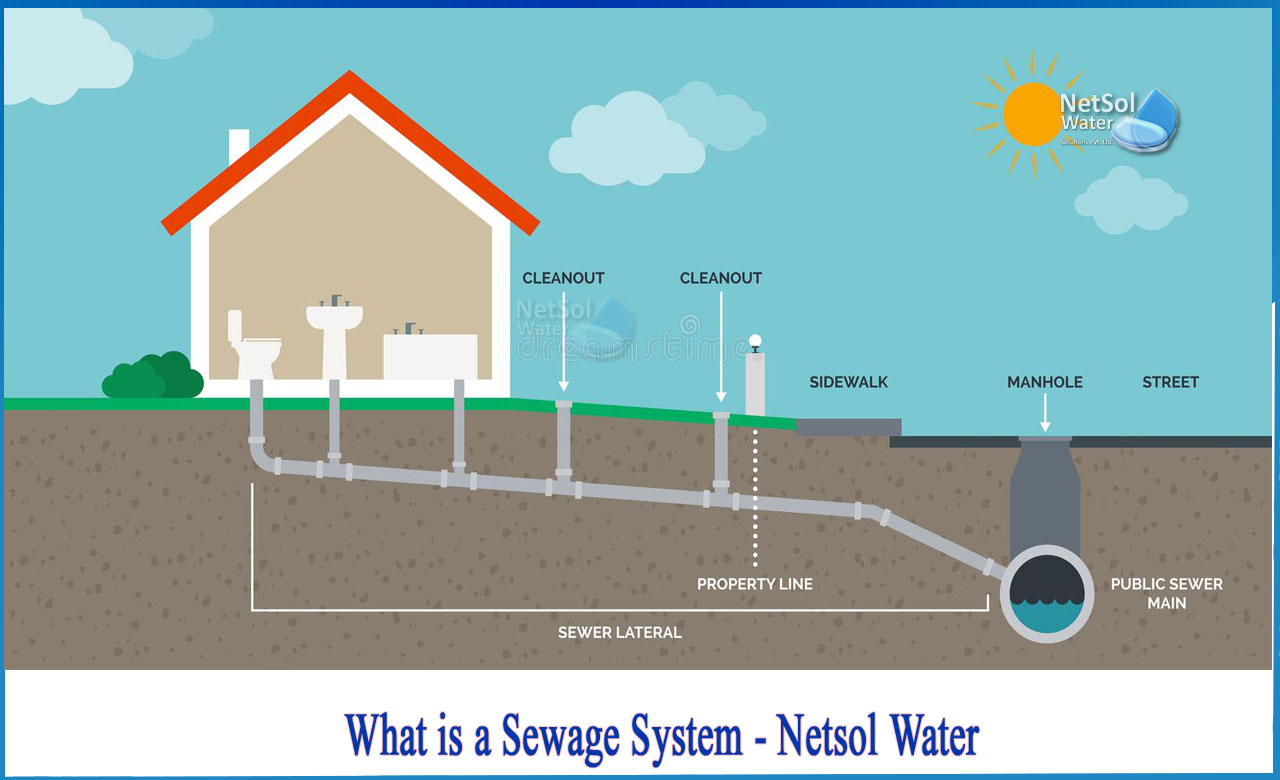
What is a Sewage System Netsol Water
Plumbing is the system or network of pipes, tanks, fittings, and other fixtures used inside a building for supplying water and removing water-borne wastes. Plumbing system follows the general law of nature gravity, and pressure. System Of Plumbing As mentioned above, there are four systems of plumbing for drainage work in a building.
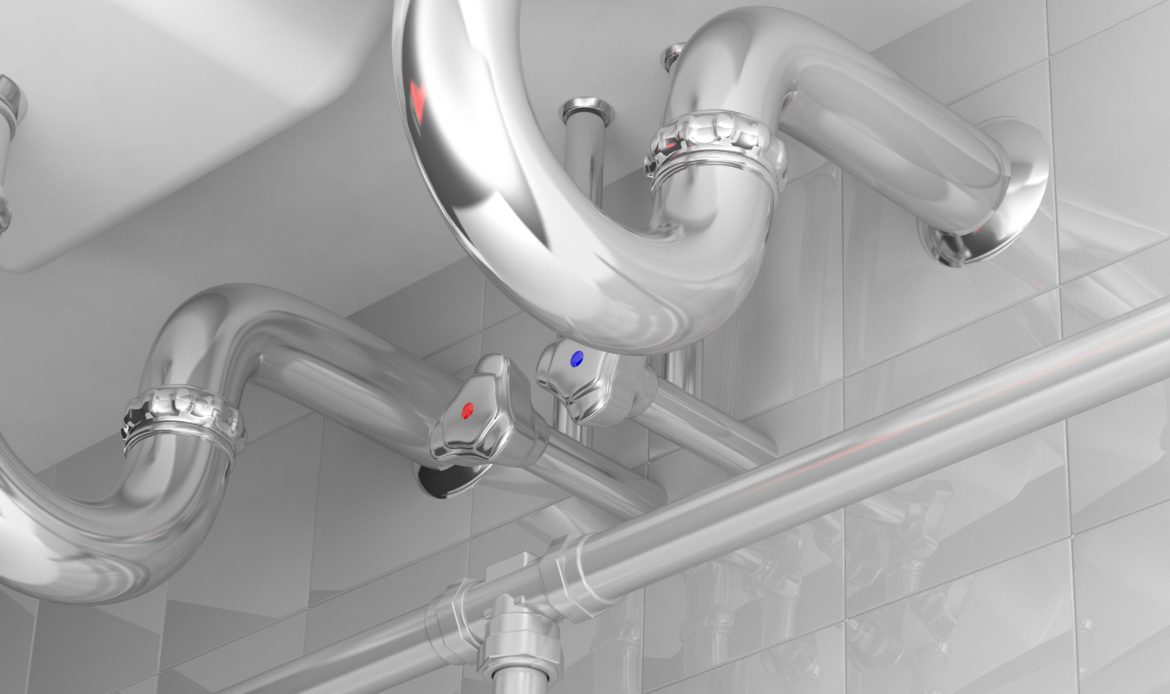
Plumbing and Sanitary System Design SMCN Consulting
1. Potable Water Plumbing System The potable water system supplies clean and safe drinking water using a network of pipes and valves. These pipes transport water from the source to the building and then to different fixtures and appliances like faucets, showers, and toilets. Usually, the water is treated and disinfected for safe consumption.
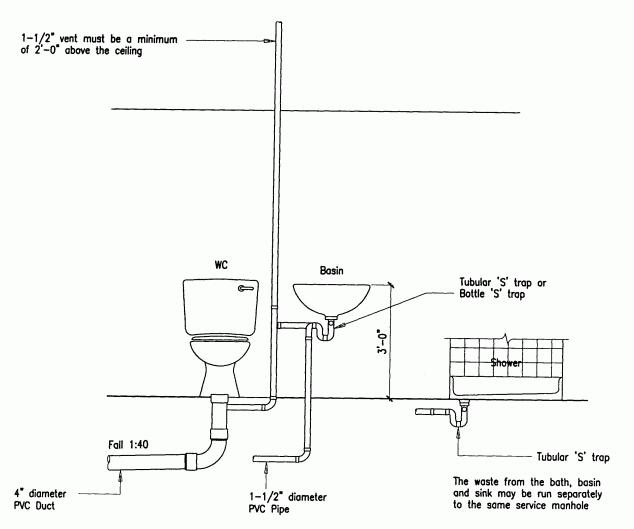
Some Helpful Details About Typical Sanitary Installation Fantastic Viewpoint
Drainage system is of two types: 1. Waste water is from showers, basins, kitchen sinks, washing machines, and the like. This is also called grey water. Normally a minimum of 75 mm dia. pipes are used for drainage of waste water. 2. Soil water or sewage is from WCs and urinals. This is also called black water.
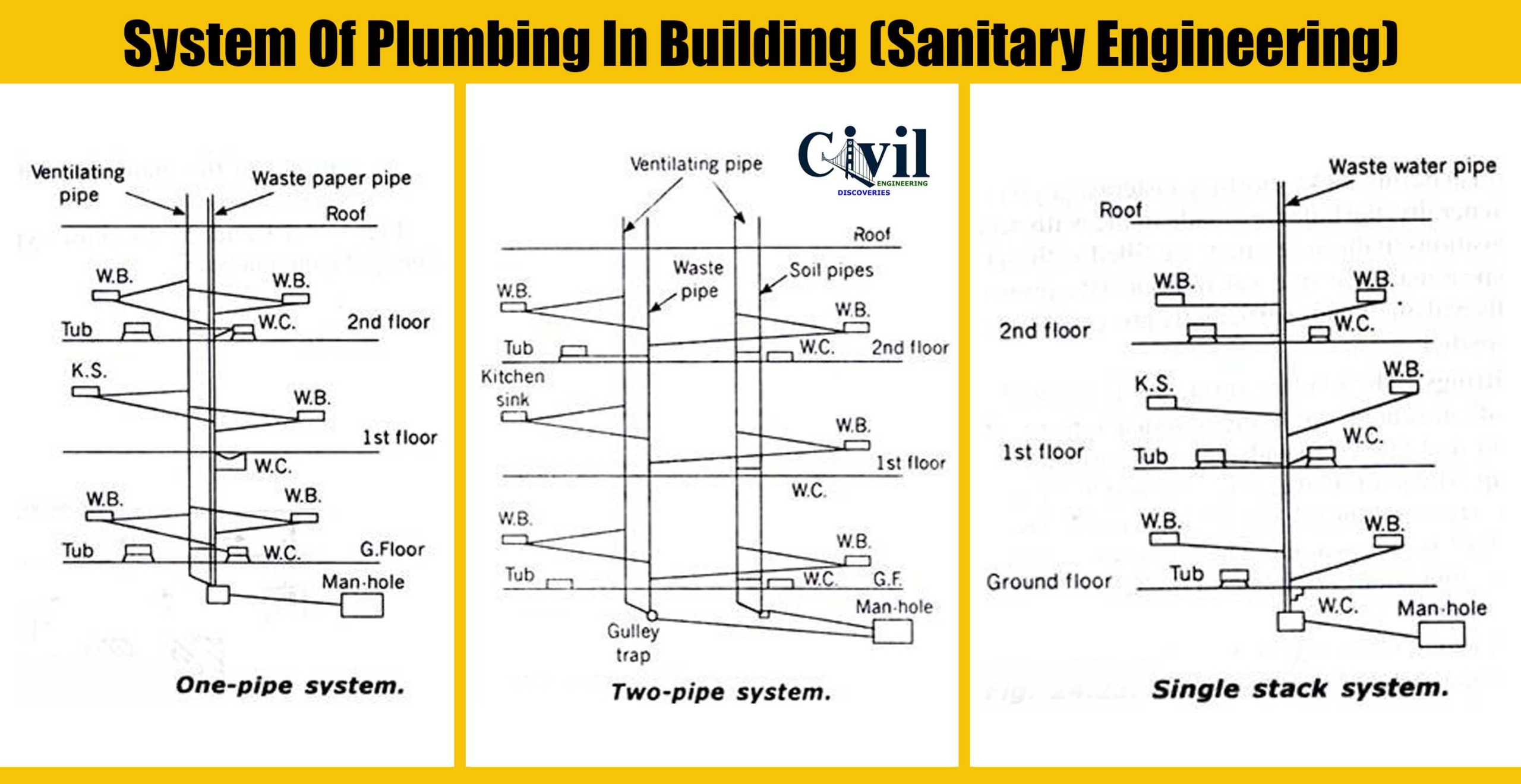
System Of Plumbing In Building (Sanitary Engineering) Engineering Discoveries
It comprises three different types of plumbing systems: mainly sewage, water, and drainage plumbing. Each type of plumbing system is designed, installed, maintained and repaired by professional plumbers to ensure efficiency. There are three different types of plumbing systems that are vital in mechanical planning for the building.
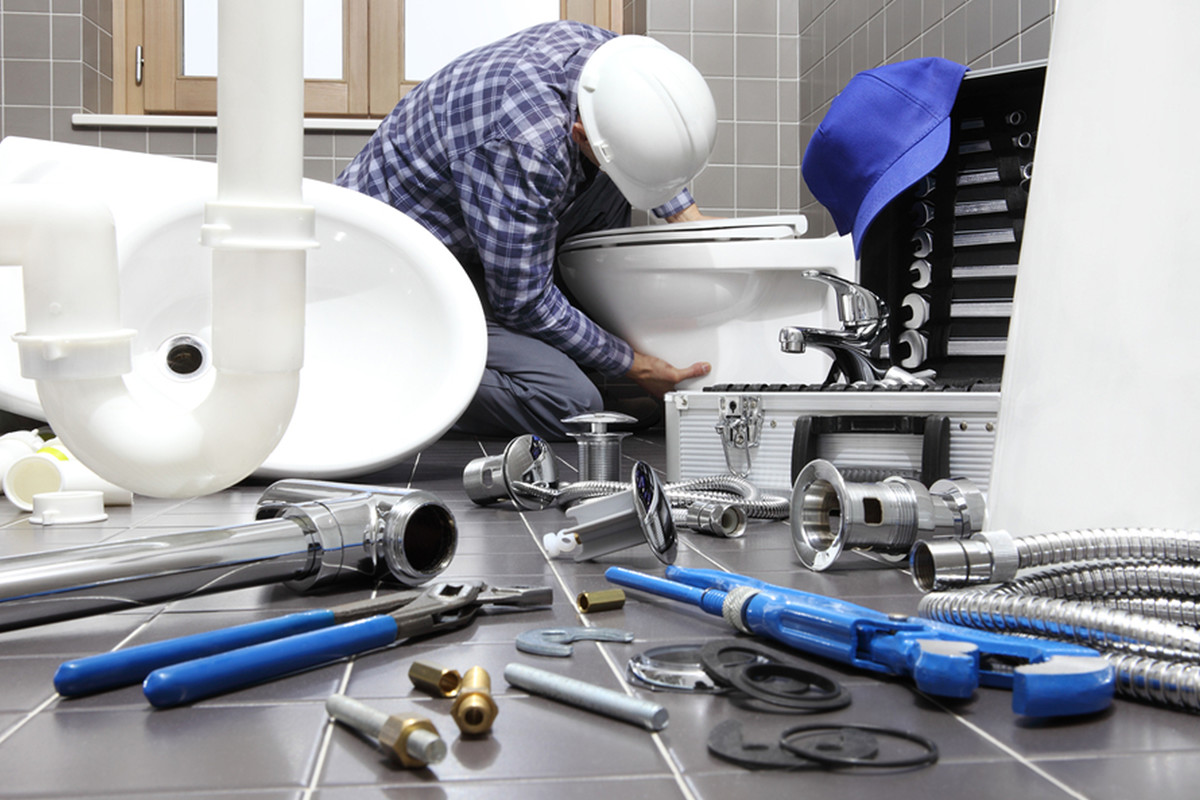
Plumbing & Sanitary Installation AMA Technical Works
The purpose of the sanitary drainage system is to remove effluent discharged from plumbing fixtures and other equipment to an approved point of disposal. In this article, I will review some information on drainage pipe systems including definitions, gravity flow in stacks drainage fixture units (DFUs), and horizontal pipe slope and sizing.
City of Cranbrook Sanitary Sewer System Flooding Information Public Works City
Sovent ® single-stack sanitary drainage, waste & venting (DWV) systems transport sanitary wastes from plumbing fixtures to a legal point of disposal while protecting the trap-seal of each fixture. The Sovent® system prevents pressure excursions from exceeding +/- one inch of water column, which is the standard for sanitary drainage systems.

plumbing and sanitary system Delco Construction
Design of Heat and Energy Transfer Systems The Plumbing Engineer supports the Civil Engineer for the plumbing systems outside the building including storm water, sewer, natural gas, fire suppression water, domestic water, irrigation water, and other special water and waste systems.